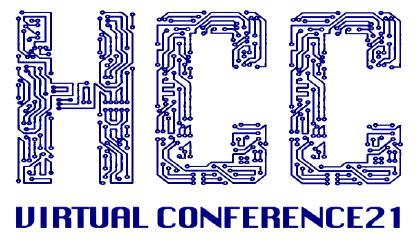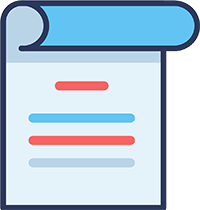The 15th International Conference on Human-Centered Computing
2021年12月09日—2021年12月11日
Online Conference
Conference Payment Link
Please click the "Payment" button or visit https://www.xing-events.com/HCC2021.html for conference registration.
HCC Conference
The International Conference on Human Centered Computing (HCC) 2021 will be held as a virtual event from 09 to 11 December 2021. The goal of HCC2021 is to further explore both theoretical and practical issues in and around the emerging computing paradigms. It is the main forum to exchanges ideas and visions on how ICT can support the construction of intelligent and sustainable societies.
Topics of Submission
The main HCC2021 track would like to solicit contributions to three main themes:
- Internet of Things: Internet of Everything, Sensor network
- Smart Environment: Smart Energy, Assisted living
- Cloud Computing: Virtualisation
- Mobile Network
- Interaction Devices
- Big Data: Storage, Curation, Management, Analytics
- Data Visualisation
- Linked Data/Open Data
- Data Provenance
- Recommendation Systems
- Data-driven Interfaces
- Data-driven Design
- Data security: Block-chain technology
- Pervasive Collaboration
- Collective Intelligence
- Peer Production
- Social Machine: Online Communities, Social Network Analysis, Social Sensing
- Context Awareness
- Multimodal Interfaces
Hyperconnectivity
Data
Collaboration
Submission and Publication
Please submit through HCC EasyChair site at https://easychair.org/conferences/?conf=hcc21. All submissions should follow strictly the Springer LNCS format. Papers should not exceed fourteen (14) pages in length and must be formatted according to the information for LNCS authors. All papers will be peer-reviewed by members of the HCC 2021 programme committee. Papers are selected based on their originality, significance, relevance, and clarity of presentation. Authors of selected papers will be invited to submit an extensively expanded version of their papers to be considered for publication in special issues in international journals.
Important Dates
Paper submission due: Thursday, 30 September 2021
Author notification: Sunday, 31 October 2021
Camera ready copy due: Sunday 14 November 2021
Programme Committee
Srinandan Dasmahapatra, University of Southampton, UK
Aisha Naseer, Fujitsu Research, Fujitsu, Japan
TPC Members
Fatima Ayoub, Maynooth University, Ireland
Innes Arana, Robert Gordon University, UK
Herbert Daly, University of Wolverhampton, UK
Matjaz Debevc, Maribor University, Slovenia
Tillal Eldabi, University of Surrey, UK
Cain Evans, Birmingham City University, UK
Liping Gao, University of Shanghai for Science and Technology, China
Zhifa He, Wuhan University, China
Andreas Holzinger, Medical University of Graz, Austria
Cunping Hou, Tianjin University, China
Bin Hu, Beijing Institute of Technology, China
Mona Jaber, Queen Mary University of London, UK
Bin Jia, IBM, UK
Hiromichi Kobashi, Fujitsu, Japan Teerath Kumar, Dublin City University, Ireland
Dun Lu, Fudan University, China
Vladimir Mladenovic, University of Kragujevac, Serbia
Cathy Mulligan, Instituto Superior Técnico, Portugal
Nhamoinesu Mtetwa, Glasgow University, UK
Michael Ng, University of Southampton, UK
Ayyaz Qureshi, Glasgow Caledonian University, UK
Hamza Raiz, Dublin City University, Ireland
Uwe Riss, SAP Research, Germany
Meina Song, Beijing University of Posts and Telecommunications, China
Lampros Stergiolas, The Hague University of Applied Sciences, Netherlands
Yong Tang, South China Normal University, China
Maria Vargas-Vera, Adolfo Ibanez University, Chile
Linda Yang, University of Portsmouth, UK
Chen Yu, Huazhong University of Science and Technology, China
Changyou Zhang, Institute of Software, Chinese Academy of Sciences, China
Yan Zhang, Glasgow Caledonian University, UK
Yu Zhang, Wuhan University of Technology, China
Shikun Zhou, University of Portsmouth, UK
Marko Cvetkovic, Cognitive Robotics Department, Faculty of Mechanical, Maritime and Materials Engineering, Delft University of Technology, Delft, Netherlands
Alexandr Lukyanov, Don State Technological University, Rostov on Don, Russian Federation
Sergey Makov, Don State Technological University, Rostov on Don, Russian Federation
Yigang Cen, Beijing Jiaotong University, School of Computer and Information Technology, China
Milan Glogorijevic, University of criminal investigation and police studies, Serbia
Dusko Joksimovic, University of criminal investigation and police studies, Serbia
Danijela Milosevic, Faculty of Technical Sciences in Čačak, University of Kragujevac, Serbia
Marjan Milosevic, Faculty of Technical Sciences in Čačak, University of Kragujevac, Serbia
Marija Blagojevic, Faculty of Technical Sciences in Čačak, University of Kragujevac, Serbia
Asutosh Kar, Indian Institute of Information Technology, Design and Manufacturing, Kancheepuram, India
Cooperation


